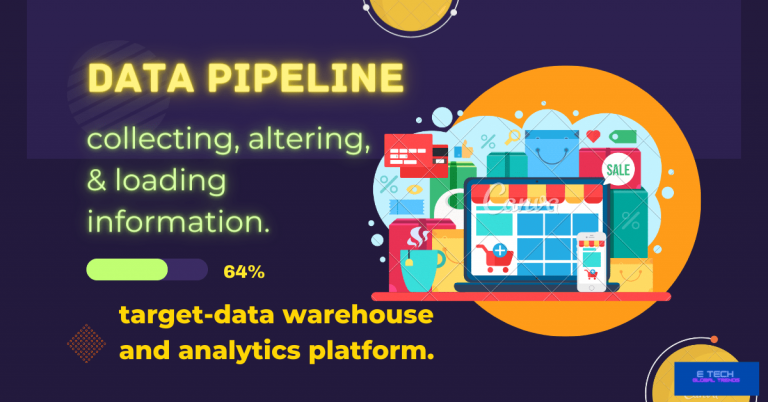Data Privacy
How important is data privacy in a business? Are you aware of this regard? Well, In the digital era, what is the function of this and how may it be safeguarded? This data is frequently essential to businesses’ growth, operations, and financial health. Ensuring that only parties with authorization have access to sensitive data is possible through data privacy. It helps guarantee that businesses comply with legal standards and stops criminals from using data maliciously. This “strong frontline” will save the strength of the business.
What is the Data privacy?
You cannot simply neglect this question. It plays an important part in your business. let’s look at the basics.
In general, information privacy refers to an individual’s capacity to choose when, how, and how much of their personal information disclosure to third parties. Names, locations, phone numbers, and online and offline activity are examples of this type of personal data. Similar to the desire to keep some individuals out of a private discussion, many internet users want to restrict or stop the collection of specific sorts of personal information.
Data privacy has grown in relevance over time, along with the growth in Internet usage. User personal data must frequently be gathered and stored by websites, apps, and social media networks for them to function. Users may not know how much privacy they actually have while using certain apps and platforms since they gather and use more data than they had anticipated. Insufficient security measures taken by other applications and platforms regarding the data they gather may lead to a data breach and jeopardize user privacy.
It’s your duty & responsibility to take action before something happens big!
Which legal concerns about data privacy for an internet business might arise?
Online companies may encounter several legal challenges related to data privacy, including observing laws like;
- The CCPA- California Consumer Privacy Act and
- The GDPR- General Data Protection Regulation.
These laws mandate that companies seek express consent before collecting data, provide data subjects the ability to see and remove their data, and put strong data security measures in place to protect sensitive personal information.
Please follow these steps before moving on to ensure you get all updates. You may respond by upvoting and leaving comments. It will encourage the submission of related information.
Online firms may take a few preventative steps to make sure they are secure from these legal risks.
1.0 data privacy audit
It is essential to first conduct a thorough data privacy audit to ascertain what information is being gathered, saved, and processed. It makes it possible to spot possible non-compliance areas and aids in the creation of efficient information. privacy management plans.
2.0 data encryption
Sensitive client information may be better protected by using data encryption and safe data storage techniques. which lowers the possibility of legal repercussions from data breaches or illegal access. Additionally, to comply with regulatory obligations and foster user confidence, express consent has to obtain for data collection as well as that consumers be informed of the goal and procedures of data processing.
3.0 stay updated on data privacy regulations
Compliance demands that information privacy rules should update regularly and that staff members get training for these regulations and best practices. These steps can lessen the legal ramifications of non-compliance and show a dedication to protecting data privacy.
It’s also critical to keep up with the most recent changes to data privacy laws & regulations. so that company practices may modify appropriately. This entails keeping an eye on modifications to the CCPA, GDPR, and other pertinent laws becoming ready for any future legislation that could affect here.
Online firms should avoid the legal consequences associated with non-compliance and manage the complicated environment of data privacy laws by following these recommended procedures.
What effects do laws governing data privacy have on companies that rely heavily on data?
Acknowledge the important effects that information privacy laws have on companies that rely heavily on data. These laws affect the operations and expansion plans of companies that primarily depend on data, even while their main goals are to safeguard personal information and improve privacy.
First and foremost, data-driven companies must make investments in easily understood privacy policies and permission procedures, which might raise operating expenses. It could be necessary to adjust how data is handled and stored to comply with these rules.
To safeguard personal data, businesses might need to make investments in;
- safe data infrastructure and
- data anonymization strategies.
- Data-driven activities’ scalability may be impacted by these modifications.
The laws provide opportunities despite these difficulties. When companies show a dedication to data protection and privacy, they may increase consumer trust and loyalty. In a crowded market, data-driven firms may stand out by implementing appropriate data practices and maintaining compliance.
How rules governing data privacy cause expenses and complications for companies that rely heavily on data. In a world where people are becoming more aware of data, companies that adhere to these rules and place a high priority on data ethics may strengthen their bonds with clients and stay competitive.
In corporate computer settings, what steps are taken to protect data security and privacy?
If you are concerned about the privacy of your data, avoid using Apple iCloud, DropBox, and Google Drive. Make use of an encrypted cloud service; better yet, use one that encrypts the local folder that you sync to the cloud. For sure, don’t trust them.
Hire a network security expert to install intrusion detection, firewalls, and other security measures on your system.
Adopt reasonable guidelines for data access and make sure they are…
What are the newest developments in data privacy and cybersecurity?
Regulations that are more stringent, technology developments and public demand for oversight of personal data are all expected to play a role in the future development of the security and privacy of data.
Emerging technologies that offer new safeguards and the constant problems of legislation and consumer awareness are projected to make the matter and security in the future a challenging task. Observe the following tendencies,
Technologies that increase privacy.
Methods like differential privacy, add noise to safeguard individual data points. and homomorphic encryption, which analyzes without decrypting data, may apply more frequently.
AI and ML-Machine Learning;
While AI can enhance danger identification and response, it also presents privacy issues with bias and data usage.
Biometric authentication; For safe access control, fingerprint scanners, face recognition software, and iris scanning are probably going to be increasingly widely used.
Blockchain; This technology provides an unchangeable means of tracking and storing data, which might enhance data security & traceability.
Control and Implementation
Sustained application of current laws; Stricter application of data privacy laws, such as the CCPA in California. and the GDPR in Europe has anticipation, with implications for enterprises throughout the world.
heightened attention to particular regions Anticipate further laws addressing the policy consequences of artificial intelligence and safeguarding children’s internet privacy.
Increasing global alignment; There may be a drive for more uniform data privacy laws across national borders as data moves more freely.
Business Practices and Consumer Awareness
Customers want more control; People are probably going to grow more conscious of their rights regarding this and start to ask for more power over the gathering and use of their personal data.
Businesses adjusting to privacy regulations; Businesses must figure out how to continue operating profitably under more stringent legislation. This might spur the development of novel privacy-focused business models.
Concentrate on data minimization; Companies should gather and retain fewer data points overall, concentrating on those that are critical to their daily operations.
What ethical issues surround the privacy of data?
This is from the customer’s side. but related to the business as well.
Because this entails protecting people’s rights and liberties with their personal information, it presents serious ethical questions. The possibility of data misuse, in which personal information may be used for discriminatory, manipulative, or surveillance reasons, is one of the main causes of worry.
- Identity theft,
- financial fraud, and
- other types of personal injury
are possible outcomes of privacy violations. The absence of control and transparency over the gathering, storing, and sharing of data raises concerns regarding consent and autonomy, underscoring the necessity of strong laws and moral frameworks to safeguard people’s right to privacy in the digital era.
Customer trust
Furthermore, customer trust in firms can damage due to data breaches and misuses, while you may easily lose, difficult to earn. which might eventually result in fewer people participating in online activities and making e-commerce purchases. Businesses may burden with expenses related to data breaches, which can also negatively impact their profitability. These expenses include legal bills, regulatory fines, and reputational harm. Tight data privacy laws may also cost companies money in compliance, which might impede their ability to innovate and compete in the market. As a result, resolving these issues is crucial to upholding confidence, encouraging innovation, and preserving a robust digital economy.
Data Privacy Compliance, Ensuring adherence to changing laws and fostering consumer confidence in data handling procedures.
What steps do companies take to ensure data privacy and confidentiality when communicating using VOIP for legal advice?
VOIP stands for Voice Over Internet Protocol. Secure methods include end-to-end encryption, and secure protocols. frequent security audits are a good option for businesses dealing with data privacy issues in VOIP communication for legal consultations. Along with industry norms and laws, they could also abide by GDPR for European data protection or HIPAA for healthcare. Furthermore, standard procedures to protect confidentiality include the use of VPNs- Virtual Private Networks. and making sure sensitive data storing securely. To reduce hum, employees must receive regular security procedure training.
The guaranteed solutions for Data privacy in a business?
1.0 A dedicated server offers enhanced control over data protection and adherence to industry rules for firms handling sensitive data.
6 stunning methods of AI can support information Privacy of a business?
AI has the potential to be a very useful technology for improving corporate this
Businesses may greatly improve their data privacy procedures, safeguard sensitive information, and foster consumer confidence by utilizing AI.
It can be useful- look at these stunning points…
1. Data Masking and Anonymization.
Protection of sensitive data; AI is capable of automatically locating and hiding sensitive data components in big databases, preventing abuse or illegal access.
Compliance with data privacy laws; This aids companies in adhering to laws such as the CCPA and GDPR.
2. Automated Information Breach Detection.
Real-time monitoring; AI systems can keep an eye out for indications of data theft or illegal access on networks and systems.
Early detection; Organizations can lessen harm and react more skillfully if breaches are discovered early.
3. Enhanced Security Measures.
Risk-based authorization; AI can determine the level of risk and decide whether to allow or refuse access based on patterns of user behavior and access.
Dynamic policies; They lessen the chance of data breaches and aid in preventing unwanted access.
4. Improved PIAs, or Privacy Impact Assessments.
Analysis done automatically; AI can assist in automating the process of locating and evaluating any privacy issues related to new initiatives or technological advancements.
Faster decision-making; This enables companies to decide on data usage and protection with more knowledge.
5. Machine Learning That Preserves Privacy.
Reduced data; Businesses may train models on dispersed data without revealing sensitive information by utilizing AI approaches such as differential privacy and federated learning.
Enhanced privacy; This preserves user privacy while allowing the data to provide insightful conclusions.
6. AI-Assisted Consent Processing.
Automated tracking; AI can monitor user consent settings. and make sure that personal information utilization is in compliance with consent.
Simplified compliance; This aids companies in adhering to consent-based laws such as the GDPR.
Summary
It’s not a magic way of getting prepared to face the challenge, of data privacy. Follow the above steps. Definitely, your business is there.
Hope this content helps!
Read more on related topics here. AI and privacy, future AI







